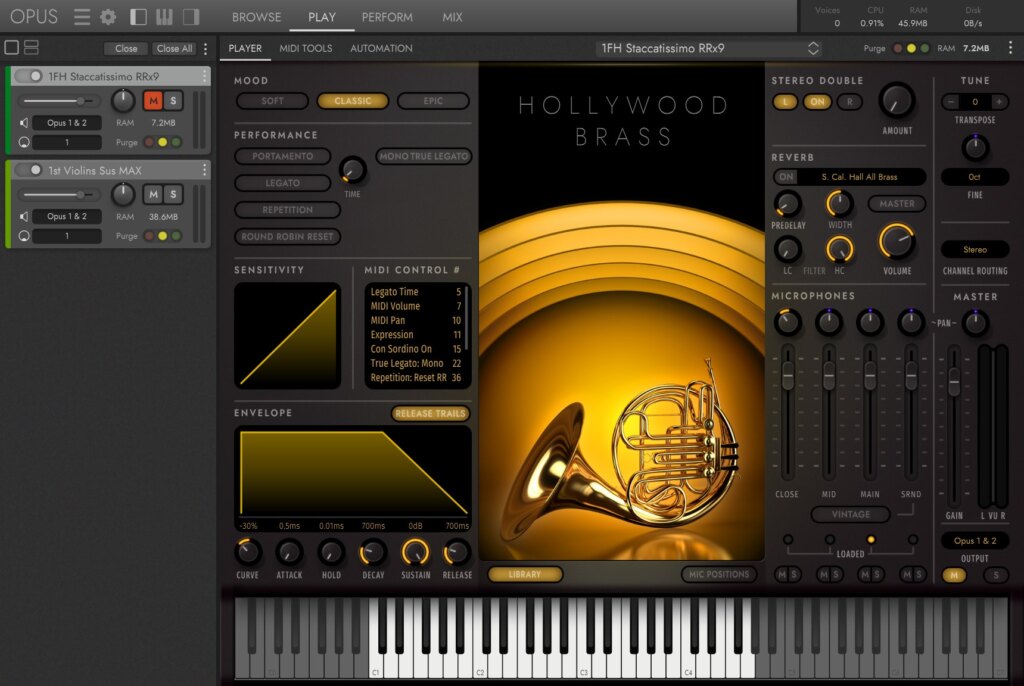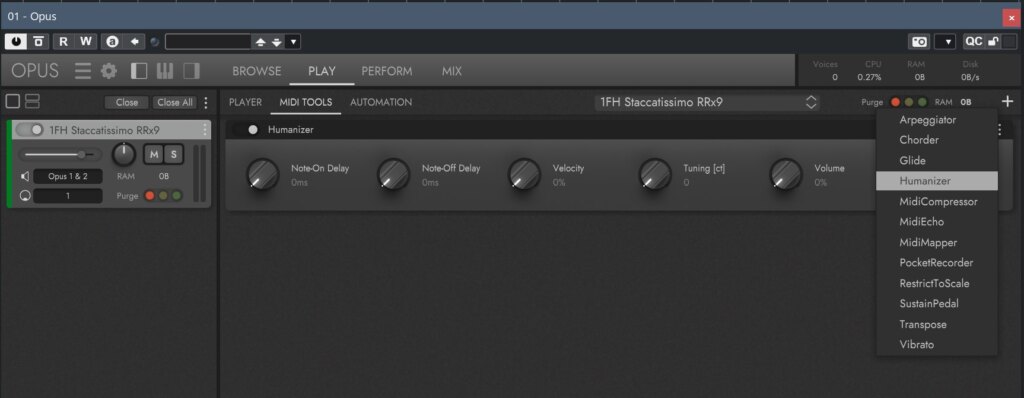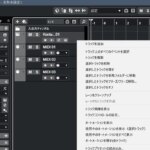EastWest’s Hollywood Orchestra Opus comes equipped with a humanize function that allows you to easily add fluctuations to performances. This function enables you to automatically randomize attack and release timing, pitch, velocity, and more in real time.
Hollywood Orchestra Opus Humanize Function
After selecting a sound patch from the Opus browser, open “MIDI TOOLS” on the “PLAY screen” and select “Humanizer” from the “+” button on the upper right of the window. By configuring this tool, humanize processing will be automatically applied to the sound patch. The setting items are as follows:
- Note On Timing (0~100ms)
- Note Off Timing (0~100ms)
- Velocity (0~50%)
- Tuning (0~100 cent)
- Volume (0~100%)
- Panning (0~100%)
Be Careful Not to Overdo Humanize
When applying humanize to MIDI data, you need to be careful not to overdo it. It is often misunderstood that human performance fluctuations can be mimicked by simply randomizing MIDI data. Randomization only results in “timing dispersion,” and the more you apply it, the worse the performance becomes. The ideal is to reproduce the inevitable (unavoidable) fluctuations that occur when a performer of a certain level or higher attempts to play in time.
In my case, I either limit timing randomization to a degree that is barely noticeable or not at all. And I only perform timing stretch/compress processing individually for phrases of high importance.
Be Careful with Pitch Randomization
Similarly, be careful not to overdo pitch randomization, and I recommend carefully judging whether processing is necessary or not. In my case, I avoid applying it to “ensemble sounds” like string sections. Ensemble sounds already include pitch fluctuations from multiple performers, so adding more fluctuations here would result in all performers shifting pitch together in the same direction with each note played. As you’ll notice if you try with deeper settings, it goes beyond being off-key and strongly creates an unnatural, artificial impression.
On the other hand, pitch randomization is compatible with solo sounds, so feel free to experiment with various settings while being careful not to overdo it.


